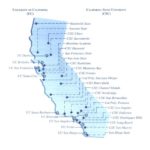Ultimate Guide to the IB Math HL Exam
What’s Covered:
- IB HL vs SL: What’s the Difference?
- How Do HL Papers/Exams Work?
- How are the IB Math HL Papers/Exams Scored?
- Final Tips
The International Baccalaureate Diploma Programme (IBDP), offers many classes thought to be challenging, academically rigorous, and perspective-broadening compared to other alternatives like the APs. A flagship selling point of IBDP is the availability of Higher Level (HL) courses.
IB HL vs SL: What’s the Difference?
IB’s two year long program asks students to pick 3 out of their 6 chosen subjects, to be HL, while the other 3 are Standard Level (SL). These subjects are picked based on their subject group and of these groups, group 5 (Mathematics) is considered to be the most difficult. Class options for group 5 consist of the following:
-
Mathematics in Standard Level (SL) / Mathematics in Higher Level (HL)
-
Mathematics Studies SL
-
Further Mathematics HL, a level even harder than HL
These courses are not only divided based on coursework and difficulty, but an expected level of intelligence and interest in the subject too. These are important differences, to be understood prior to even considering a class. HL courses are best suited for students who intend to pursue a similar field in further education, for example, a future biology major wouldn’t have to take Math HL; it would do more harm than good, since the course won’t be relevant to what they’ll need in college/university. Taking SL in this case would allow the student to be able to focus on more relevant HL courses! This guide will be focusing on the HL aspects of mathematics, but if you feel that HL isn’t something you’re interested in, try looking into the SL variant instead.
How Do HL Papers/Exams Work?
In HL, there are three papers written during the exams. A paper is just a kind of test. Here, paper 1 and paper 2 are both 2 hours long, with paper 1 being a calculator-prohibited exam. These two papers cover a vast majority of the content taught through the IB coursework, with each paper having a slightly different format and styling to their problems. The kind of student you are and your strengths and weaknesses might dictate which exam you’d find easier!
Paper 3 is a different test entirely. While paper 1 and paper 2 consist of most of the coursework in the class, paper 3 is an additional paper. In HL math, you choose an additional set of topics to study on top of regular coursework, usually done towards the end of the two year program. As of 2022, these are the following options:
-
Statistics and probability
-
Sets, relations and groups
-
Calculus: Sequence, series, and differential equations
-
Discrete Mathematics
Of these four options, students will pick one to write an additional paper about. Paper 3 will test you on your knowledge of just these topics, with maybe very few questions that you’d find similar to questions from paper 1 or paper 2. While most students consider the coursework for paper 3 to be tough, it’s actually the small amount of time given to complete it that makes the paper so hard – students are given only an hour to complete paper 3.
How are the IB Math HL Papers/Exams Scored?
Each question in all three papers holds value/marks, and while paper 1 and paper 2 are scored out of 100, paper three is scored out of 50. Keep in mind that IBO can change these values at any time, and it’s important to check in with your school for the newest updates.
The most effective way to study for IB exams is to do past papers. Past papers are most often supplied via schools, so you can always ask your teacher to give you some any specified year’s set. Past papers are effective methods of studying because for each paper you’ll study, there’s an associated mark scheme (rubric) that is equally as important. Mark schemes show you how to solve questions, to not only arrive at a correct answer but to also do it the way IB would want you to do it. This means by studying the mark scheme you can maximize the number of points you grab from any attempted question! This is also why adhering to instructions in an exam is super important. For example, if a question tells you to solve a problem using a certain method, don’t use any other method otherwise you might be penalized a few points.
The following rubric/table details how your scores in each individual paper help total to form a total score for the class (this is for students who’d have picked Calculus for their option):
IB classes are scored out of a total of seven points. Each of the papers contributes to that total, with the boundaries determining what grade you can get on individual papers. “Exploration” here refers to the internal assessment, required by IB as a part of their core component of an even larger, overarching grading system, and this is scored out of a total 20 points. To determine your final grade out of 7 for the class, you’d take the total earned from all three papers and your exploration, and divide this by 270 for a percentage. This percentage can then be used to determine where on the scale from 1 to 7 your grade falls into, as seen in the last column of the table above. Understanding these grade boundaries helps you find out where your strengths and weaknesses are, and how to play to them. For example, if you know you’re going to struggle with paper 3, you can just work harder on either another paper or the exploration to help make back the lost points! This system is beneficial to the student, and helps manage the stress and workload of an HL subject.
Final Tips
Exams are never a pleasant experience, and IB mathematics can be super difficult, regardless of whether you’re in HL or SL. But understanding the following few tips and pointers might help you manage this stress and excel in your examinations!
Start Studying Early
This is an obvious but important tip! Getting the IBDP means more than just passing exams, it means finishing CAS, your extended essay, TOK and way more! Therefore, try freeing up your schedule towards the end of your program for other tasks by starting your studying earlier. Reviewing concepts and coursework as you go through them in class is an efficient way to keep your memorization sharp, but to also lighten your workload as you progress.
Change Your Paper 3 Topic Selection
Sometimes you might realize the topic/option you selected for your paper 3 might not have been the best choice for you, which is totally okay! This is fine, because IB allows you to switch these selections as long as it’s done before you sign up for the examination session, and pay for your exams. Realizing which selection works best for you can be a trial and error process, but that’s normal and it’s better late than never when it comes to finding the right pick.
Relax and Breathe
Sometimes it will feel like loads of coursework, exams and internal assessments will just catch up to you and the deadlines will loom over you. The best thing to do in situations like this is to take a step back from all of it and breathe. Put the studying away momentarily and do something for yourself that you’d enjoy. Use the time to come back refreshed, and when you do hit the books again, you’ll feel more productive than before!
Remember, your IB scores aren’t as important as you think when it comes to college acceptances and admissions. Showing determination through hard work and challenging/meaningful course selection is more important!. For more information regarding college acceptances and admissions, check out CollegeVine’s free admissions calculator. This tool uses your GPA, standardized tests scores, coursework and extracurriculars to calculate your odds of acceptance into a university!


